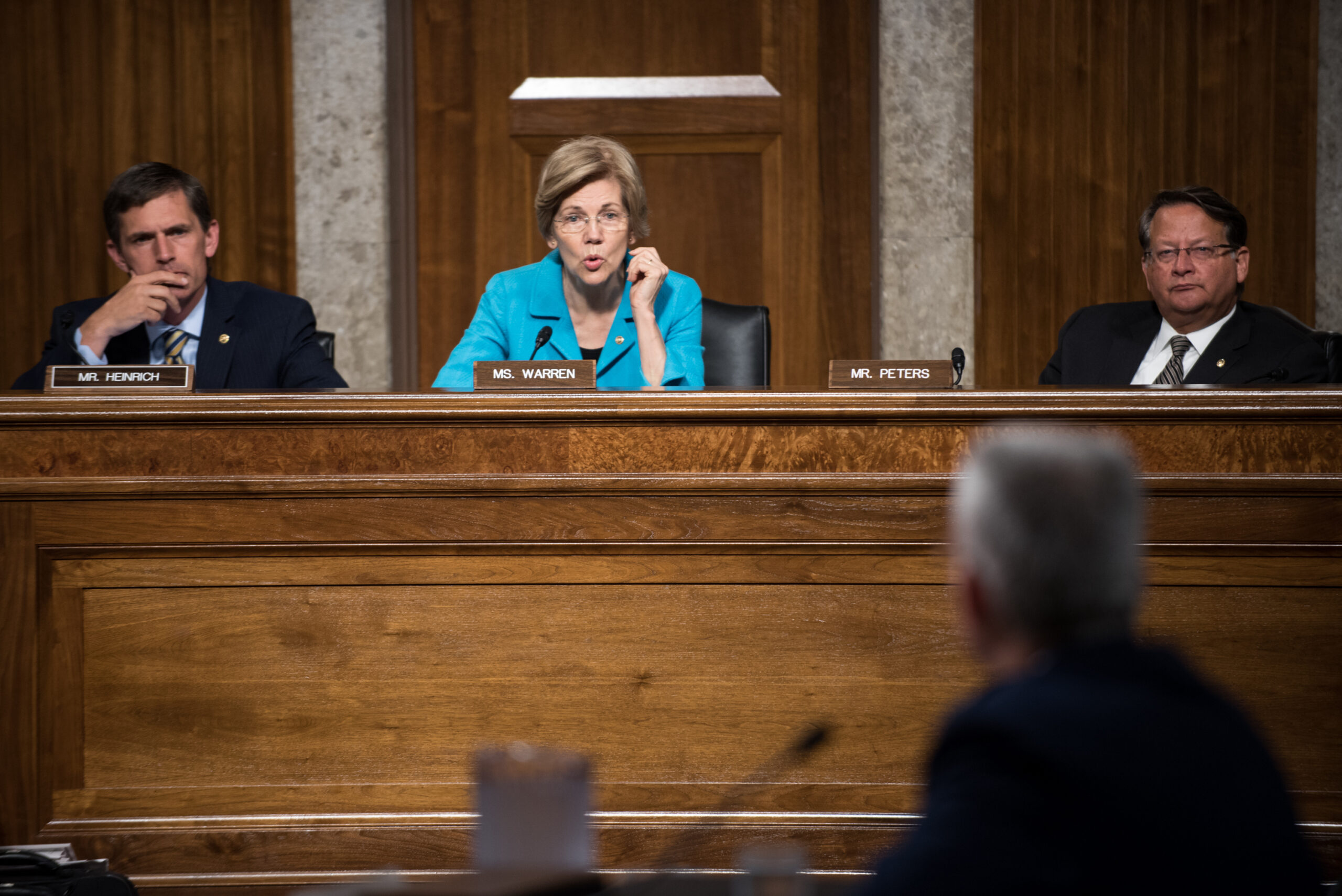

Sen. Elizabeth Warren (D-Mass.) sent a letter to the Pentagon expressing conflicts of interest concerns about employees appointed to the Defense Department’s new venture office using “their position for personal profit,” according to a copy provided to Task & Purpose.
In a letter Wednesday, Warren said the DOD’s Office of Strategic Capital, OSC, lacks “sufficient guardrails” to prevent “special government employees” — who simultaneously work for private defense consulting and investment firms — from using their work with the OSC to financially benefit them in their full-time jobs. Special government employees are appointed or employed by the U.S. government to perform temporary duties with or without compensation.
“The Office of Strategic Capital directly shapes and influences our military investments and the public ought to have confidence that these investments are going towards victory on the battlefield, not self-dealing,” Warren said in a statement to Task & Purpose.
The DOD did not respond to a request for comment in time for publication.
Warren sent a previous letter in July to Defense Undersecretary for Research and Engineering Heidi Shyu, raising concerns that the OSC was “too cozy with private investment firms.”
Subscribe to Task & Purpose Today. Get the latest military news and culture in your inbox daily.
The letter comes as the DOD increasingly relies on private contractors for building weapon systems, providing services on military bases, and researching and developing defense innovations. The billions of dollars that the DOD spends in private contracts also extend to conflict zones like previous U.S. military operations in Afghanistan and Iraq where more than half of the DOD’s presence in the country was made up of contractors, according to Congressional Research Services.
“As today’s private sector capital is the dominant funding source for technology development, we can build enduring advantages through engagements with trusted private capital that is focused on critical technology areas for the Department of Defense,” Shyu wrote in her July 28 response to the Democratic senator.
The Pentagon has faced increased scrutiny over the “revolving door” of former military officials going to work at some of the largest defense contractors like Raytheon and General Dynamics. Congress has also held hearings and passed legislation to specify conflicts of interest policies for companies that do defense and commercial sector work.
The OSC was established last year to provide long-term funding for emerging defense capabilities and bridge the gap between innovations developed in a lab and deployed to troops in the field. The DOD also aims to encourage private sector funding and decrease investment risk in key defense sectors like artificial intelligence, biotechnology, and quantum science.
The OSC’s two special government employees work at WestExec Advisors and New Vista Capital — two firms that work on defense and technology consulting.
“Both of these firms could use information gathered by their SGEs to benefit their investments,” Warren wrote.
In her original response, Shyu said that the OSC-appointed employees provide legal and market research and help craft internal policies.
Warren called it a “loophole” that creates opportunities for them to influence policies “that benefit their full time employers.”
Warren urged for greater overall transparency from the Pentagon and called for the special employees to publicly list their firms’ clients and investments that could benefit from OSC activities.
The latest on Task & Purpose
- 101st and 82nd Airborne Division soldiers deploying to Eastern Europe
- Have you seen me? All the best ‘Missing F-35’ memes
- Marine Corps searching for F-35 after pilot ejects in South Carolina
- Senate bypasses Tuberville on Joint Chief nominations for Brown, George
- Search for missing Marine F-35B finds debris field